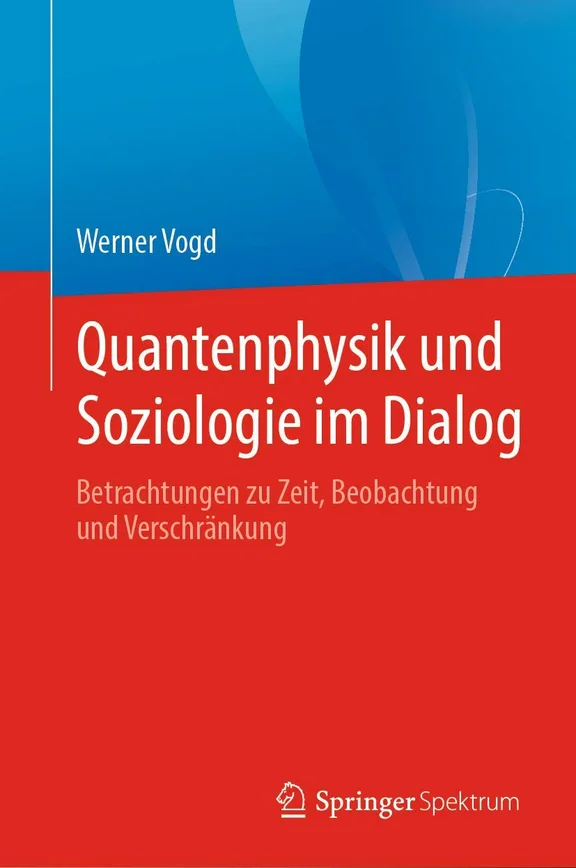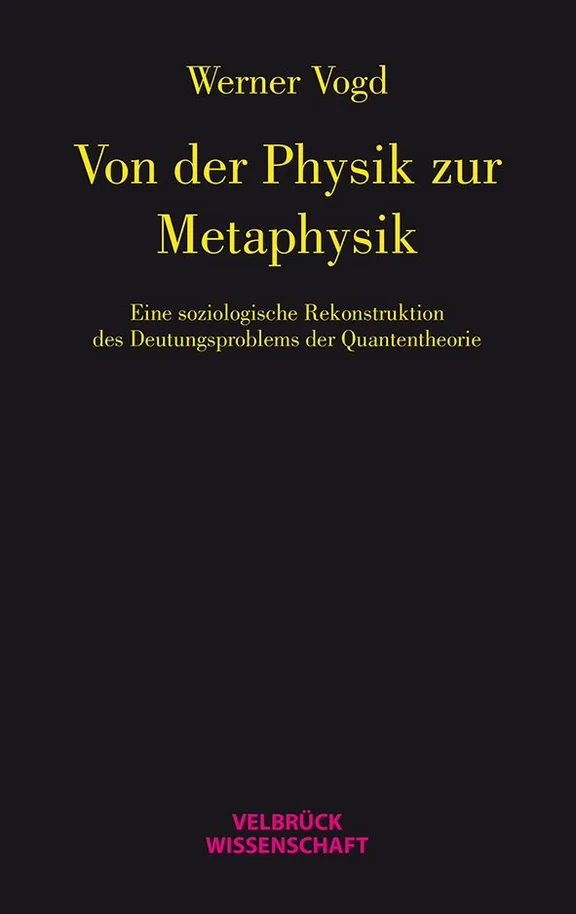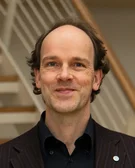Quantum physics and sociological systems theory in dialogue
Project overview
Quantum theory is one of the most challenging and successful theoretical projects in the history of mankind. It is one, if not the universal theory of physics. However, the history of its interpretation and the controversy surrounding its interpretation affect far more than just the field of theoretical physics. Such a theory destroys ontological certainties. It calls the observer into question and gives us an idea of what to expect when we deal with complex phenomena in other fields that are infected with the observer problem. For this reason, it seems particularly interesting for (sociological) systems theorists to enter into dialogue with quantum theory.
"Quantum physics and sociology in dialogue: Reflections on Time, Observation and Entanglement"
Whether in quantum physics, cognitive science or sociology - the problem of the observer and the inclusion of non-knowledge and indeterminacies has arisen in various scientific fields, not least for empirical reasons. The associated theoretical concepts entail aporias or paradoxes. Not least for this reason, the comparison of quantum physics and sociology promises new insights into the achievements as well as problems of world descriptions that do not want to exclude self-reference per se. The dialogue is based on selected problem areas. These include, for example:
- The object-subject interface
- the question of what information is (for whom)
- the observer dependence of concepts such as probability, causality and indeterminacy
- the modelling of extrinsic properties
- dealing with complexity and the relationship between meaning, object and interpretation.
In this project, renowned physicists and sociologists enter into a dialogue with regard to the work of Anton Zeilinger, which, in addition to epistemological problems, also deals with the open questions of their own specialist field.

"From physics to metaphysics: A sociological study on the problem of interpreting quantum theory"
Quantum theory is one of the most challenging and successful theoretical projects in the history of mankind. It is one, if not the universal theory of physics. However, the history of its interpretation and the controversy surrounding its interpretation affect far more than just the field of theoretical physics. Such a theory destroys ontological certainties. It calls the observer into question and gives us an idea of what to expect when we deal with complex phenomena in other fields that are infected with the observer problem.
As transclassical physics, quantum theory is built, as it were, on "worlds without ground" and thus disappoints the hope of being able to get rid of questions of meaning through physics or mathematics. Homologue to the high forms of mystical reflection, however, the debate about the interpretation of quantum physics can give us an idea of what the secret of the conditioned co-production of system and environment, reflection and world can mean for us, and possibly help us to become at home in worlds without reason. Here it becomes clear that highly driven theory, which in its abstractions detaches itself to a high degree from the reality of the real world, does not contradict the possibility of world knowledge. On the contrary, only a sufficiently elaborated theory structure equipped with its own internally conditioned consistency constraints represents the condition for the possibility of reflection and the acquisition of knowledge.

Further information
- Duration: ongoing
- Responsible: Chair of Sociology
Project management

Univ.-Prof. Dr.
Werner Vogd
Chair holder
Faculty of Health (School of Medicine) | Chair of Sociology
Alfred-Herrhausen-Straße 50
58455 WittenRoom number: C-2.329